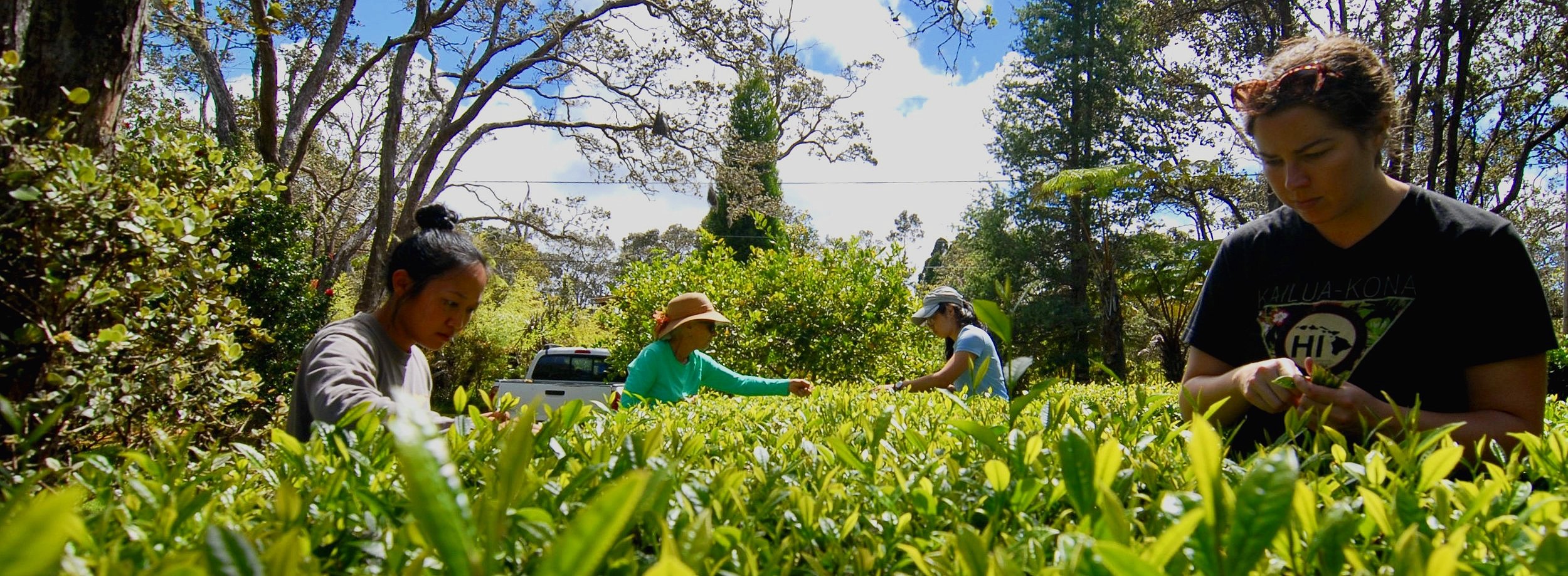
We offer a five day, intensive, field and classroom course in the “Agroecology of Tea”.
Eliah has over ten years experience teaching workshops and training tea farmers on our farm and at international and national conferences. Cam has over 30 years experience as a university biology teacher and researcher in “ecological genetics”. He has given numerous talks at international conferences, given workshops to students and professors, and collaborated on research on the agroecology of tea. Together Eliah and Cam offer a hands on and academic approach to train farmers how to create an ecologically sustainable tea forest.
Below, Cam is talking to a group of undergraduate and graduate students from University of Mississippi. We are collaborating on a study of the evolution of volcanic soil and how soil microbial communities improve plant health. We study how diverse soil microbiomes and diverse forests improve the taste of tea leaves.
We are, once again, offering a 5 day Intensive Agroecology of Tea Course from Mon. July 28 - Fri. Aug. 4th. 2023.
Please check back with us.
About the Farm.
Eliah has over 30 years experience in creative landscaping and 22 years farming tea. Cam has over 30 years experience teaching university biology: genetics, ecology, evolution, biochemistry, etc) and 22 years working with Eliah on their tea forest. Together, Eliah and Cam tell a fun and interesting story of the culinary, cultural, ecological, social, and scientific underpinnings of Big Island Tea.
Big Island Tea was established, and planted its first tea trees in 2001. In 2004, Kilinoe Tea Forest was planted by Eliah and Cam to replace a commercial/greenhouse operation which was surrounded by 7‘ invasive grass. “Kilinoe” means misty rain in Hawaiian, which is the prevailing weather pattern on the farm. We are rehabilitating a native cloud forest habitat in which tea, coffee, and many other food plants thrive on the NE slope of Mauna Loa volcano.
FYI: wild tea is a forest dwelling sub-canopy tree.
